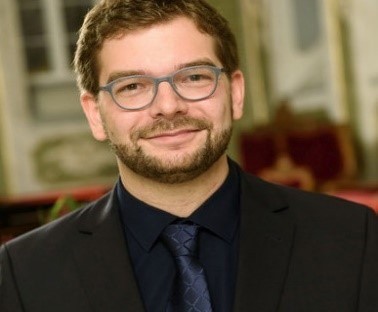| | | SEFI Ethics Special Interest Group Newsletter
|
| | | | |
| The Ethics SIG Newsletter is issued 8 times per year and aims to share information on cutting edge engineering ethics research and practices. If you would like to join the mailing list please use the form on the SEFI Ethics SIG website.
If you would like to propose an item for the newsletter, please contact [email protected], or [email protected].
|
End-of-year-celebration-technology and engineering ethics |
| | | | |
| December and January. It means celebrations of Chanukah, Christmas, New Year, Bodhi Day and many others celebrations. Gathering with families and friends. Warmth, exuberance, inner peace or various other experiences will be part of this. Many of us are, due to national COVID-regulations, heading towards high-tech versions of these existential celebrations. Will you have a family Christmas dinner via videoconference? Or are you figuring out how to party into the New Year in a safe digital way? For sure, this is not the first time in the history of mankind that people elaborate celebration-technology. You can rightfully consider candle making 25 centuries ago as high-tech evolutions at that time, as different innovations took place on the use of olive lamp oil in Africa, cinnamon in India, tallow in Europe, or whale fat in China. Several scholars analysed that these (and other) technical evolutions influenced ethics, religion and religious celebrations. So, our situation is certainly not new to humankind, but it is nevertheless particular and pressing for us (individuals and our generation). And this situation is part of engineering students’ daily lives. It brings together their strong and existential feelings (linked to “The right to celebrate?” or “The need for family warmth?”) and their views on technology. It seems a perfect engineering ethics topic to discuss how intimate, secure, just, existential, safe, or limited students want technology to be on New-Year’s eve… Two topics of this newsletter tackle parts of this actual discussion 1. Christian Herzog writes about “A Virtual Ethical Innovation Lecture as a Resource for Connecting Researchers and Students from Technology and Engineering to Ethics”. Christmas-high-tech is not one of the topics, but many other issues that can be interesting for your students are!
2. Bill Williams, Shannon Chance and Inês Direito report on the practical recommendations from their project on “Tackling gender inclusion of Middle East students in engineering education with Project Based Learning”.
We hope you enjoy these contributions, together with the usual parts on research and upcoming projects. And we wish you warm and existential celebrations. Gunter, Diana As always: If you have an idea for a contribution, do not hesitate to contact us. |
Tackling gender inclusion of Middle East students in engineering education with Project Based Learning |
Shannon Chance (TU Dublin and UCL), Bill Williams (CEG-IST, Universidade de Lisboa and TU Dublin ), and Inês Direito (UCL) |
| | | | |
| Equity next to Inclusion and Diversity Research from the US suggests that engineering schools often craft “the ideal student” as a young, single white male and that this tends to problematically impact minoritized students (Pawley, 2019). Our experience of working in engineering schools in 3 European countries suggests that similar situations can also prevail here.
While SEFI in recent years has given attention to issues of inclusion and diversity we will focus on the third contributor to the IDE acronym: equity, the practice of ensuring that processes and programs are impartial, fair and provide equal possible outcomes for every individual.
Discussing dominance and minority positions via Project-Based Learning (PBL We analysed the specific challenges faced by international students from the Middle East studying in Europe. We have studied the experiences of young women from the Middle East with collaborative learning in TU Dublin’s Bachelor of Engineering course by interviewing one cohort of 8 women longitudinally, across four years (Chance & Williams, 2018, 2020). Fowler and Su (2018) summarize that it is important in PBL to encourage students to develop a mastery orientation, to equip students with the communication and negotiation skills to disrupt power dynamics, and when appropriate, to intentionally assign students to specific roles in a way that counteracts overt and latent biases. Our research indicates it is also important not to frame team formation and task allocation in terms of dominant groups straightforwardly ‘making way’ for minoritized groups. We all can do more to consider the implicit advantages people aligned with majority norms receive, and how this may lead them to overlook or even coopt the contributions of people from minoritized groups. For example, white students need to better understand that minority students do want to work on their teams but do not always feel included in the same settings they are accustomed to.
More information about these issues can be found on the following blog about our study, in the references in the text and also in the study by Nguyen et al (2020). |
A Virtual Ethical Innovation Lecture as a Resource for Connecting Researchers and Students from Technology and Engineering to Ethics |
| | | | |
| By Christian Herzog (University of Lübeck) Enabling engineering students to articulate and discuss values and ethics in technology is a primary goal of ethics courses in engineering curricula – and rightfully so. Being an engineer by primary education myself, I have experienced first-hand the different cultures and the effort it may require opening your mind towards a different discipline.
|
| | | | | | |
| At the Ethical Innovation Hub, we want to reach out to our academic engineering colleagues, tech companies and engineering students to address this. The Ethical Innovation Hub is a research group at the University of Lübeck dedicated to integrating ethical analyses and societal aspects into technological innovation. Our mission is to help spread the word about initiatives, research results as well as methods and tools in this area by building bridges between technology and humanities. Our “Virtual Ethical Innovation Lectures”, or “VEILs” provide a series of virtual events. In bite-sized presentations followed by a Q&A session, we bring together interested persons from academia representing different disciplines, industry and public life for discussions on all things tech & ethics. Each VEIL will be followed-up by a written summary of the highlights of the presentation, as well as a recording of the presentation. We ask our speakers to deliver inputs accessible to audiences not familiar with the contents. We therefore also advertise the VEILs to our students as an additional resource for inspiration. And the interest that our students show is remarkable! Future dates include · Esther Buchmüller & Beat Vollenwyder, Dec 15th, 2020 "SBB Inclusive - The App for Barrier-Free Customer Information by the Swiss Federal Railways" · Ansgar Koene, Jan 19th, 2021 "Principles, Standards and Regulation for Trustworthy AI" · Thomas Losse-Müller, Feb 16th, 2021 "Sustainability Considerations for the Digital Transformation" · Hermann Diebel-Fischer, Apr 27th, 2021 "Ethics and Quantification: Disentangling a Relationship" To stay informed about future dates, you can sign up for the Ethical Innovation Hub newsletter via https://www.eih.uni-luebeck.de/subscribe |
Call for Submissions for the SEFI Ethics Spring School 2021:
|
“Experiencing Engineering Ethics Education: Reflections, evidence and perspectives on engineering ethics education in practice” |
| | | | |
| Dates: 25 -26 March 2021 Location: either a blended event online and onsite in the Swiss Jura (near Geneva) or fully online Cost: Registration is free |
The SEFI Ethics Special Interest Group is organising a one and a half day workshop on engineering ethics education, and invites those interested to submit suggestions for workshops, or papers. Please submit a short expression of interest (200 words) to [email protected] by 17January 2021.
|
| | | | | | |
| Spring School Themes: The school will be organised around three strands: Educational methods: How do we effectively teach and learn in engineering ethics education? What do good practices look like? Do they look different in big classes than in small ones? Can educational technology help, or does it get in the way? Assessment of learning and of course impact?: What tools, methods or approaches can be used to assess whether or not courses and teaching is having the desired effect? Is teacher intuition enough? Can we rely on student feedback? Are qualitative research approaches useful? Do relevant quantitative tools exist, and if so, how do we interpret them? Framing “Engineering ethics”: Is engineering ethics principally concerned with giving students a philosophical approach to engineering questions? Does it include teaching engineering techniques like collaborative design or risk analysis? If we teach sustainability, have we covered ethics? Is the gendered nature of engineering education and practice an ethical issue? Participants can feel free to suggest other themes and topics which may lie outside these three strands. Read the complete call |
Call for participation: one day online seminar
|
“Exploring Ethical Concerns in Electronic and IT Engineering Education” |
| | | | |
| 18 January 2021, 13.30-18.30 CET - online |
The online seminar will bring together educators, industry representatives and policy experts with the aim of exploring how ethical concerns can be integrated in the ITC and Electronic engineering curricula, and of fostering the collaboration between the private sector and engineering programmes in the development of educational initiatives. The event is hosted by TU Dublin and benefits from the participation of SEFI SiG Ethics members Roland Tormey and Gunter Bombaerts. |
| | | | | | |
| The seminar is free to attend, and the programme together with the registration link are available here.
For more information, please contact the organiser: [email protected] |
Open calls - Upcoming events |
SEFI 2021 Annual Conference Blended Learning in Engineering Education: challenging, enlightening – and lasting? 13-16 September 2021, TU Berlin
Call for papers open (deadline 16 March 2021) |
Exploring Ethical Concerns in Electronic and IT Engineering Education
18 January 2020, TU Dublin (Online) Registration open
|
CDIO Europe-UK & Ireland Regional Meeting 2021 6-8 January 2021, the Norwegian University of Science and Technology (online) Registration open
|
Publication: Building an Inclusive Foundation of Engineering Education Research Scholarship (Edited Handbook of Engineering Education Research) Call for chapter proposals open |
IRSPBL 2021, 8th International Research Symposium On PBL, Educate For The Future: PBL Sustainability And Digitalisation 16-19 August 2021, Aalborg University, Denmark Call for abstracts (deadline 15 December 2020) |
Special Issue: Ethics, Social Responsibility and Sustainability in Engineering Education Journal: International Journal of Engineering Education Call for extended abstracts (deadline 31 December 2020) |
The 17th CDIO International Conference 21-23 June 2021, Chulalongkorn University, Bangkok, Thailand Call for abstracts open (deadline 15 January 2021) |
Great Lakes Philosophy Conference “Ethics in Action”
9-11 April 2021 (online) Call for abstracts open (deadline 1 February 2021) |
19th LACCEI International Multi-Conference for Engineering, Education, and Technology, “Prospective and trends in technology and skills for sustainable social development: Leveraging emerging technologies to construct the future”
21-23 July 2021, Buenos Aires, Argentina Call for papers open (deadline 1 February 2021) |
The Society for Philosophy and Technology Biannual Conference, “Technological Imaginaries”
28-39 June 2021, UC Lille, France (online) Call for abstracts open (deadline 15 February 2021) |
4th International Conference of the Portuguese Society for Engineering Education (CISPEE 2021), “Shaping Engineering Education for the 21st Century” 21-23 June 2021, Instituto Superior Técnico, University of Lisbon, Portugal Call for abstracts open (deadline 29 March 2021) |
Special Issue: Transformative learning for Urban Sustainability: futures of transdisciplinary educational models, structures and tools Journal: Environment, Development and Sustainability Call for papers open (deadline 31 March 2021) |
| | | | |
| Call for chapter proposals for an inclusive Handbook on Engineering Education Research. As part of a newly funded NSF project, Aditya Johri, editor of the Cambridge Handbook of Engineering Education research, is preparing a new handbook of engineering education, with a broader scope and more diverse contributions in topics and authors. The aim of the edited volume is to build an inclusive foundation of engineering education research scholarship. At the following link, you can access a survey for expressing interest in contributing as an associate editor, author or reviewer, as well as suggesting what themes should be given attention to: http://bit.do/engehandbook or https://gmu.az1.qualtrics.com/jfe/form/SV_8unFfwqCYSZgb53 The survey should not take more than 10 minutes and as littles as 2 minutes as there are only three required questions. |
| | | | |
|
New Center for Knowledge, Technology and Society launched by The University of California, Irvine. The role of the Center is to bring philosophy together with a range of disciplines, including education, medicine, law, nursing, and cognitive science, to tackle urgent contemporary problems. The Center will be run by philosopher Duncan Pritchard. More information about the activity of the Center is available here |
Recent articles and publications |
| | | | |
|
Exploring the discursive construction of ethics in an introductory engineering course - link Author(s): Lönngren, J.
JOURNAL OF ENGINEERING EDUCATION |
Linking personal and professional social responsibility development to microethics and macroethics: Observations from early undergraduate education - link
Author(s): Schiff, D.S., Logevall, E., Borenstein, J., Newstetter, W., Potts, C., Zegura, E. JOURNAL OF ENGINEERING EDUCATION
|
The development of a case-based course on global engineering ethics in China - link Author(s): Clancy, R.F. INTERNATIONAL JOURNAL OF ETHICS EDUCATION |
Ethics education: the impact of ethics training engagement on unethical decision-making in the workplace. - link
Author(s): Singer, S., Diab, D.
INTERNATIONAL JOURNAL OF ETHICS EDUCATION |
The growth of Ethics Bowls: a pedagogical tool to develop moral reasoning in a complex world - link Author(s): Lee, L.M. INTERNATIONAL JOURNAL OF ETHICS EDUCATION
|
Assessing Ethoshunt as a Gamification-Based Mobile App in Ethics Education: Pilot Mixed-Methods Study - link Author(s): Zakaria N.S., Saripan M.I., Subarimaniam N., Ismail A. JMIR SERIOUS GAMES |
The Impact of Transdisciplinarity on Solving Complex Engineering Problems in an Ethnically Diverse Classroom - link Author(s): Gulbulak, U., Ertas, A., Cordell, M. INTERNATIONAL JOURNAL OF ENGINEERING EDUCATION
|
| | | | |
| SEFI thanks its corporate partners for their support: |
| | | | |
|
SEFI aisbl 39, rue des Deux Eglises
1000 Brussels
|
| | | | | | | | |
| | | | |







